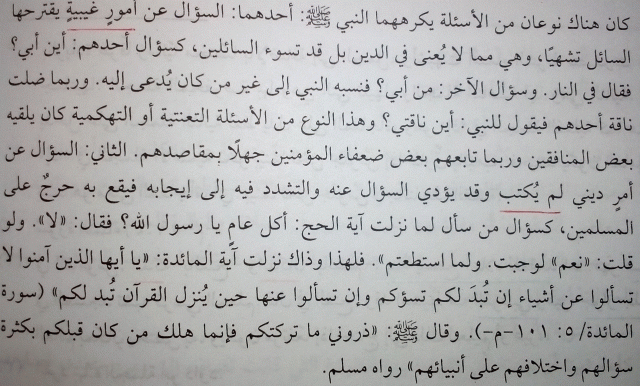2=
Muhammad saw Um Habiba the daughter of Abbas while she was fatim (age of nursing) and he said, "If she grows up while I am still alive, I will marry her.
Musnad Ahmad, Number 25636
You are referring to this Hadith, which is quoted in Musnad Ahmad, Musnad abi Ya'la and al-Kabeer of Imam at-Tabarri etc. The major problem here is the main route and known narrator of the sirah ibn Ishaq who is considered as not reliable in hadith matters, even the son of Imam Ahmad said quoting his father: لم يكن يحتج به في السنن Nobody used his narration when it commes to sunnah/hadith as an argument.
So scholars tend to say the hadith is da'if (weak) because hadith of ibn Ishaq isn't reliable if there's no similar narration of any other on the matter, which is the case here all the scholars who compiled this hadith have ibn Ishaq in the narrator chain.
An other narrator who is not reliable in the chain is Hussayn ibn Abdullah ibn Obaydallah ibn 'Abas حسين بن عبد الله بن عبيد الله بن العباس : he was a known narrator of manakeer.
Two major scholars have qualified this hadith as dai'f (weak): Sheikh Shoayb al-Arnaout in his examination of Musnad Ahmad and Sheikh Hussayn Salem Assad in his examination of Musnad abi Ya'la. (See also this thread in Arabic on the matter)
An other note on the hadith matn, assuming it would be accepted: The Messenger of Allah (peace be upon him) only said that he would marry her if.... if she reached the right age for marriage, so this doesn't have nothing to do with desire, but could be related to strengthen the relationship to al-Abbas as he did with Abu Bakr and Omar (May Allah be pleased with them). So this hadith shows the position of al-'Abbas and his ranking by the Messenger of Allah.
And Allah knows best.
http://islam.stackexchange.com/questions/31515/muhammad-saw-wanting-to-marry-daughter-of-ibn-abbas-is-this-hadith-authenticTo comment further about this specific Hadith, we need to look at Hadith history. Was it possible that Jews, hypocrites and other enemies of Islam united together and tried to include fabricated Hadiths, to mislead the Muslim community? Yes of course. The proof that an attempt had been made by the enemies of Islam with introduction of false Hadiths is the fact that out of seventeen books of Hadiths only six were accepted by our religious scholars. More than 65% were rejected as being fabricated and misleading.
Was this Hadith Musnad Ahmad, Number 25636 part of the 6 books that was accepted as authentic Hadiths? NO, it was not!
As mentioned above, two of the narrators of this Hadith were proven to be unreliable. Further to that the main narrator Ibn Ishaq was pointed out by his contemporary, the early traditionalist and jurist Malik, of unequivocally being "a liar" and "an impostor" "who transmits his stories from the Jews". Malik explained his condemnation of Ibn Ishaq saying Ibn Ishaq made a point of seeking out descendants of the Jews of Medina in order to obtain from them accounts of the Prophet's campaigns as handed down by their forefathers. Malik and other Jurists rejected Ibn Ishaq’s stories in the strongest terms!
Proof of him taking this story about Ummu’lFadl from the Jews is shown by the peculiar choice of her age being 3 that narrators attribute her age to be. Why not 2, 4, 5 or some other number? Why 3? It is because 3 is the age identified in Jewish scriptures numerous times as permissible to have sex with. Here are some references taken directly from the Jewish Talmud:
MISHNAH: A girl of the age of three years and one day may be betrothed by intercourse … (Niddah 44b)
Come and hear! A maiden aged three years and a day may be acquired in marriage by coition, and if her deceased husband's brother cohabits with her, she becomes his. — Sanhedrin 55b
There was a certain town in the Land of Israel the legitimacy of whose inhabitants was disputed, and Rabbi sent R. Romanos who conducted an enquiry and found in it the daughter of a proselyte who was under the age of three years and one day, and Rabbi [Judah the Prince] declared her eligible to live with a priest.
Rev. Dr. Israel W. Slotki adds in a footnote: "I.e., permitted her to continue to live with her husband." — Yebamoth 60b
GEMARA. … It was taught: R. Simeon b. Yohai stated: A proselyte who is under the age of three years and one day is permitted to marry a priest, (2) for it is said, But all the women children that have not known man by lying with him, keep alive for yourselves, (3) and Phinehas (4) surely was with them. And the Rabbis? (5) — [These were kept alive] as bondmen and bondwomen. (6) If so, (7) a proselyte whose age is three years and one day (8) should also be permitted!
Dr. Daiches tells us that, according to the Sages, the hymen of a girl younger than three literally grows back again. "If they had sexual intercourse before they were three years and one day old the hymen would grow again, and they would be virgins." V. 9a and 11b and cf. Nid. 44b and 45a.
http://www.ascertainthetruth.com/att/index.php/zionism-a-palestine/zionism/1599-sex-with-children-by-talmud-rulesThe above are all explicit references to having sex with children in the Talmud. There is no interpretation or unknown weak narration involved as there is in the references made to Islam. They have tried to charge Islam with something their scriptures are guilty of.
Hadith 25636 and others narrated especially by Ibn Ishaq and also Tabbari are havens for Islamophobic websites whose whole purpose is to demonize Islam and steer people away from the religion. The fact that most good Muslims who adhere to the authentic Hadiths in the 6 books of Hadith don’t even know about these Hadiths that are quoted so much by haters of Islam is proof that these false Hadiths don’t form the basis of our religion. The fact that these false Hadiths are so well known by Jews, Islamophobes and haters of Islam shows a passing down through the generations over time the false Hadiths that was introduced into Islam by these same enemies of Islam. They know exactly what they tried to include in the religion to demonize it and have passed it on through time only to surface again today. Students and truth seekers should beware of this and not be deceived.
http://www.ascertainthetruth.com/att/index.php/al-islam/answering-the-critics/1611-is-hadith-25636-of-muhammad-saw-wanting-to-marry-3-year-old-daughter-of-ibn-abbas-authentic




 Is this a Joke ?
Is this a Joke ?

